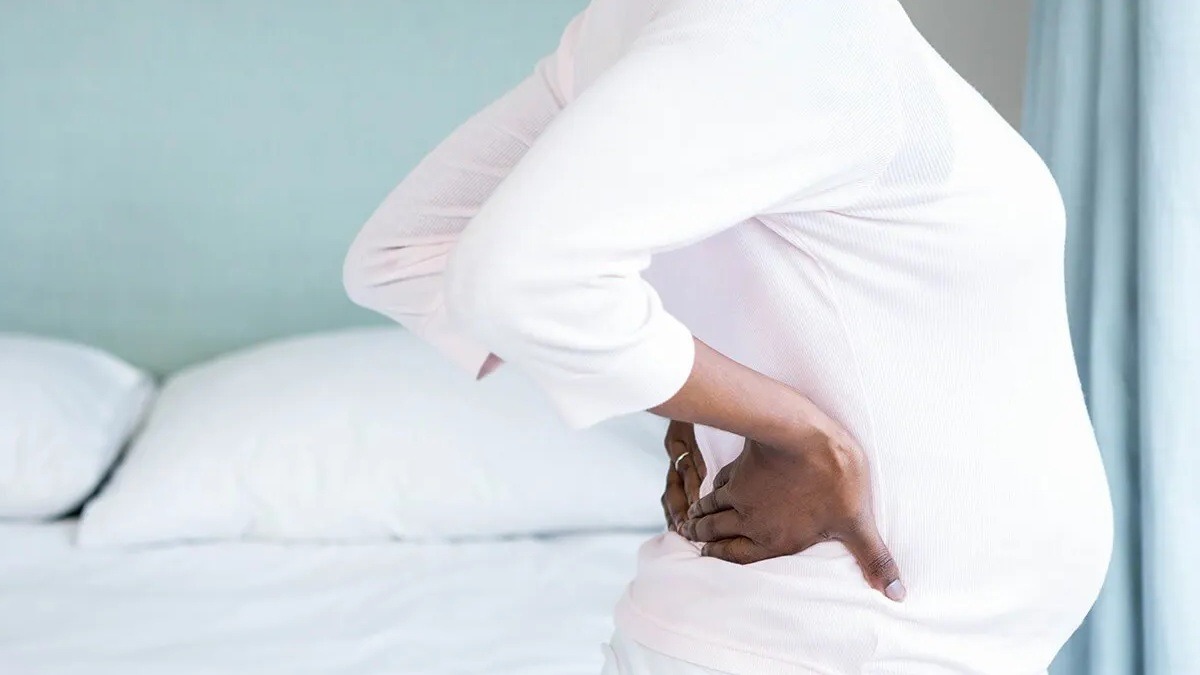Pregnancy is a remarkable journey, but it often comes with various physical challenges, one of the most common being back pain. Many women experience back pain during pregnancy, and unfortunately, it can persist even after childbirth. This blog explores the reasons behind post-pregnancy back pain and provides practical tips on how to manage and alleviate it effectively.

Reasons for Back Pain After Pregnancy
- Hormonal Changes:
- During pregnancy, the body produces the hormone relaxin, which helps relax the ligaments in the pelvis and soften the cervix in preparation for childbirth. However, this hormone can also cause ligaments to loosen and joints to become less stable, leading to back pain that can continue after delivery.
- Postural Changes:
- The growing belly during pregnancy causes the center of gravity to shift, leading to changes in posture. Many women develop an exaggerated lumbar curve (lordosis) to accommodate the weight of the baby, which can strain the back muscles and contribute to pain.
- Weight Gain:
- The additional weight gained during pregnancy places extra stress on the back, which can lead to pain and discomfort. Even after childbirth, the body may take time to adjust to the pre-pregnancy weight distribution.
- Weak Abdominal Muscles:
- Pregnancy can weaken the abdominal muscles, which play a crucial role in supporting the spine. This weakening can result in an imbalance, causing more strain on the back muscles.
- Breastfeeding Posture:
- Poor posture while breastfeeding or bottle-feeding can contribute to back pain. Many new mothers hunch over their baby during feeding, which can strain the back and neck muscles.
- Lifting and Carrying:
- Lifting and carrying the baby, car seats, and other baby gear can put additional strain on the back. Incorrect lifting techniques can exacerbate this issue.

How to Tackle Post-Pregnancy Back Pain
- Exercise and Strengthening:
- Core Strengthening Exercises: Strengthen the core muscles, including the abdominal and back muscles, to provide better support for the spine. Pilates and specific postpartum exercise programs can be beneficial.
- Pelvic Floor Exercises: Strengthening the pelvic floor muscles can help stabilize the lower back and pelvis.
- Gentle Yoga and Stretching: Practicing yoga and stretching exercises can improve flexibility and reduce muscle tension.
- Maintain Good Posture:
- Standing and Sitting: Keep your back straight, shoulders back, and avoid slouching. Use a chair with good lumbar support and avoid sitting for prolonged periods.
- Breastfeeding Posture: Use pillows to support your baby and bring them to your breast instead of leaning forward. Maintain a comfortable, upright position while feeding.
- Proper Lifting Techniques:
- When lifting your baby or other objects, bend at your knees and keep your back straight. Hold the object close to your body and avoid twisting your torso while lifting.
- Ergonomic Adjustments:
- Ensure that your baby’s crib, changing table, and other frequently used items are at a comfortable height to minimize bending and straining your back.
- Heat and Cold Therapy:
- Heat Therapy: Applying a warm compress or heating pad to the affected area can help relax tense muscles and improve blood flow.
- Cold Therapy: Using an ice pack can reduce inflammation and numb the pain.
- Massage and Physical Therapy:
- Regular massages can help alleviate muscle tension and promote relaxation. Consulting a physical therapist can provide tailored exercises and treatments to address specific back pain issues.
- Healthy Weight Management:
- Gradually losing the extra weight gained during pregnancy can reduce the stress on your back. Focus on a balanced diet and regular physical activity.
- Rest and Sleep:
- Ensure you get adequate rest and sleep to allow your body to heal and recover. Use supportive pillows to maintain a comfortable sleeping position.
- Consult a Healthcare Professional:
- If back pain persists or worsens, it’s important to seek medical advice. A healthcare provider can assess your condition, rule out any serious underlying issues, and recommend appropriate treatments or therapies.

Conclusion
Back pain after pregnancy is a common issue, but with the right approach, it can be effectively managed and alleviated. By understanding the reasons behind post-pregnancy back pain and implementing practical strategies such as exercise, proper posture, and ergonomic adjustments, new mothers can find relief and enjoy a more comfortable postpartum period. If you are experiencing persistent back pain, consult a healthcare professional to develop a personalized plan that addresses your specific needs.
At ALGOS Multispeciality Pain Clinic, we are dedicated to supporting new mothers with comprehensive care and expert guidance to ensure a smooth recovery and a healthy, pain-free life.





